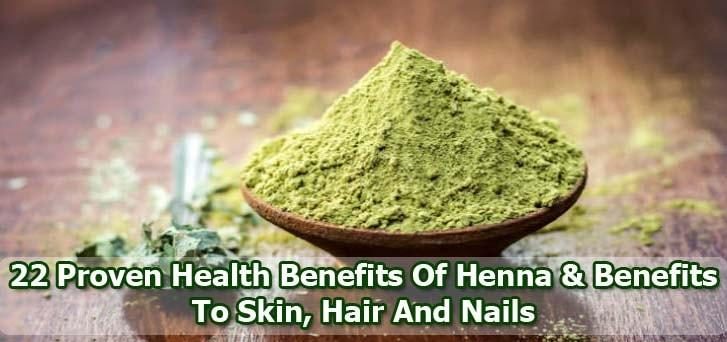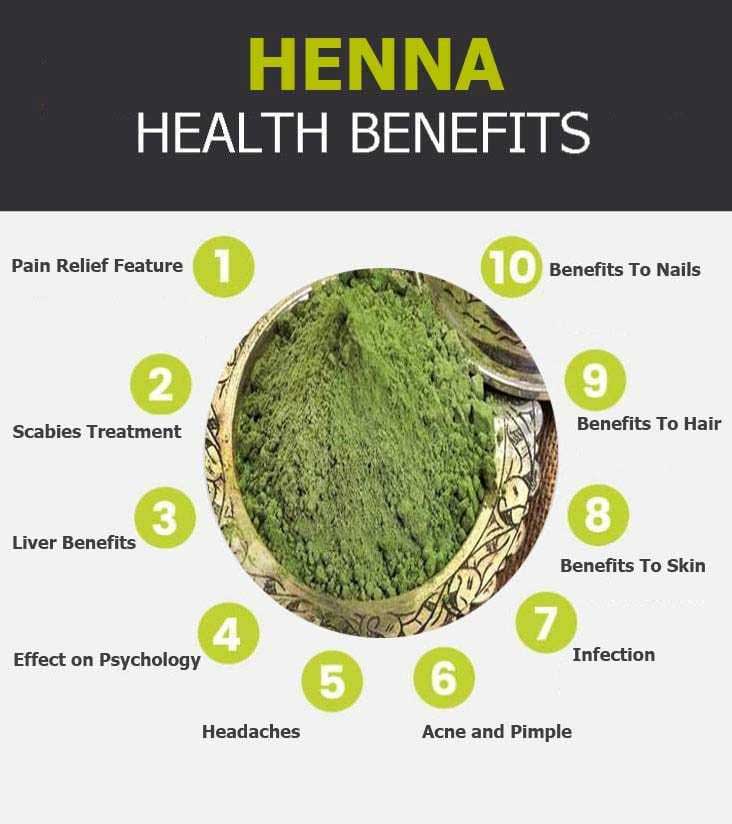What Is Henna?
Henna, otherwise known as henna, is used as an ornamental tool from ancient times. In our country until the near future, henna applied to the hands of bride and groom candidates at weddings and engagements has an important place in our culture.
It is derived from leaves of trees that grow widely in the Arabian Peninsula. The leaves of trees in question are dried first, then ground into powder, thus obtaining this powder. During its application, water is liquefied by joining the henna. It is in dark red or dark green colors. India is more famous in Asia, especially the half-island of Arapa.

What Are The Benefits of Henna?
Henna, which has been used as an ornamental tool for many years, has been used by different civilizations for medicinal purposes as well. The health benefits of henna are limited because of are not consumed by eating. It is mostly used for skin, hair and nail health.
Pain Relief Feature
It has pain relief properties, it can be effective against pain that occurs for any reason. When henna is applied to the affected part, it prevents pain. It is beneficial to burn wounds, as it reduces pain and can help the burn wound heal quickly.
It is also thought to be beneficial to open wounds. It relieves the pain caused by the wound, and because of this feature, it is used against pain caused by cases such as breaking, spraining.
Scabies Treatment
It is useful against scabies, a skin disease that usually occurs when there is too much contact with animals. The application of mush to the affected section of scabies can eliminate the problem.
Liver Benefits
The shell of this plant, which is an extremely healthy plant in terms of health, is beneficial for the liver. The shell of the henna plant is also used in the treatment of jaundice disease.
Effect on Psychology
The distinctive smell of this herb is beneficial for the central nervous system. The smell of henna has a positive effect on nerves and provides relaxation and relaxation of the nerves.
Headaches
Headaches are mostly red and pink henna flowers. These flowers mixed with vinegar when applied in a short time can eliminate headaches. Also, it is possible to apply henna in the form of a paste to relieve headaches.

Acne and Pimple
It is widely used to treat acne and pimple. Also, it is used for treatment against skin diseases that occur in different parts of the skin or skin.
Infection
Henna, which is an effective healing source for burns, is also good for inflammation of the tongue or oral cavity when mouthwash is performed. It is thought to cure thrush disease.
Benefits To Skin
Henna, which is partly used in the treatment of skin diseases, provides thickening of the skin with the help of the nutrients it contains. It is useful in preventing the shedding of thin skin. Also, henna contributes indirectly to the maintenance of the health of skin cells.
Benefits To Hair Of Henna
The most important benefit of this herb for hair is that it is a natural healing source for the hair that is shed. It is also very beneficial for overall hair health.
Regular application of the henna to the hair can prevent breakages that occur in the hair. It prevents premature hair loss and helps to maintain healthy levels of PH in the scalp. Balancing the pH value of the henna helps to eliminate the dandruff problem and dryness of the scalp.
It is an effective and natural treatment against dandruff, hair also provides softening of silky appearance. To maximize the benefits of hair, it is recommended to apply henna to the hair in the form of mush. It promotes hair growth, provides for the strengthening of hair follicles.
Benefits To Nails
It is widely used in nail treatment. Especially the nails, which tend to crack, have therapeutic properties. When it is applied to the nails in the case of porridge, it can eliminate the nail structure which tends to break. When a mixture of genuine oil and this powder is used, maximum efficiency can be obtained.
Other Benefits
• When applied by mixing with wax and rose oil, it may be beneficial for back pain.
• Some sources indicate that it increases sexual desire.
• It is also thought to be an effective insect repellent.
• When it is applied to the feet, it can eliminate fungal cases that occur on the feet. Also, when applied to the scalp can prevent the formation of scalp boils.
• It also has a cleanser feature, because of this feature is commonly applied to palms.
• Sniffing henna applied to the palm is good for headaches.
• It is beneficial for muscle health by mixing with olive oil. It is known to be beneficial to muscle health since ancient times.
• Due to its antibacterial properties, it is generally effective against infectious and inflammatory diseases.
• It may partially prevent the development of some cancer tumors.
• Spleen health benefits are still under investigation. Recently it has been widely used for spleen health.
• Some sources state that henna reduces spasms.
Side Effects
It appears safe when used by adults for hair and skin. It may also cause problems such as flushing, rash, swelling, burning, blisters on the skin depending on the health conditions of the person.
• May cause allergies on sensitive skin.
• May cause respiratory allergy; like wheezing, coughing and shortness of breath in asthma patients. Although these side effects are very rare, they can be seen.
• Taking henna by mouth is not recommended. Accidental swallowing of henna may require immediate medical attention.
• Eating henna can adversely affect the stomach.
• Henna in children and babies can cause some skin problems.
• Oral henna is not recommended during pregnancy. Because it is thought that there are substances that can cause abortion in henna.
• Likewise, oral henna is not recommended during lactation.
• If you are allergic to henna, you should avoid contact.
Advice
When we look at it in general terms, it is possible to say that it is a natural skin and hair care product that does not have a side effect as long as it is used carefully. For many of us, it is a new thing in the name of the benefits of henna.
